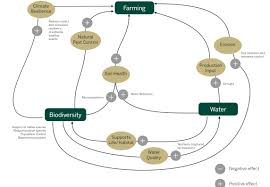Two superfoods that could slash dementia and cancer risk - and help you live longer

The importance of what we eat when it comes to our health cannot be overstated. Your diet has a huge influence on your overall health and well-being, with some foods known to increase or lower your risk for certain conditions.
These include two types of foods that scientists have claimed could have a major impact on potentially deadly diseases, lowering the risk of dementia, cancer, and heart disease.
Adding these to your diet regularly could even help you prolong your life, according to research.
As reported by The Times, the foods we should be eating more of include leafy greens and nuts.
But what is the science behind it and how much should we be consuming?
Leafy greens
This includes foods such as spinach, kale, cabbage, and lettuce.
These are considered a brain food staple because of the essential nutrients, including vitamin K, lutein, and folate, and a range of beneficial plant flavonoids they contain.
They are also a source of nitrates, compounds that are converted by the body to nitrite, which relaxes and widens blood vessels to boost blood flow to the heart, brain, and muscles.
Nutritionists at Rush University in Chicago discovered that eating a daily serving of leafy greens was shown to slow age-related cognitive decline.
People who ate two or more servings typically displayed the memory and recall skills of someone 11 years younger.
And last year a large study supported by the World Cancer Research Fund involving more than 70,000 people showed that a daily dose of leafy greens could help to cut the risk of bowel cancer by as much as seven percent.
Dr Linia Patel, a registered dietician, said: “Green leafy veg can have a profound effect on general health and on heart health”.
And researchers at Edith Cowan University’s Institute for Nutrition Research in Australia showed that a daily serving of leafy greens helped to “significantly reduce the risk of blood pressure and cardiovascular disease” in a study of nearly 3,000 people.
Nuts
Just 20 grams (equivalent to a palm-sized handful) of nuts a day could come with a slew of health benefits.
Scientists from Imperial College London and the Norwegian University of Science and Technology ruled that nut-eaters could cut their risk of heart disease by nearly 30 percent, cancer by 15 percent, and premature death by 22 percent.
Published in the journal BMC Medicine, the review of 29 studies from around the world found that eating nuts daily cut the risk of dying from respiratory disease in half and from diabetes by almost 40 percent.
The study concluded: “Higher nut intake is associated with reduced risk of cardiovascular disease, total cancer and all-cause mortality, and mortality from respiratory disease, diabetes, and infections.
“In conclusion, our results provide further evidence that nut consumption may reduce the risk of coronary heart disease, stroke, cardiovascular disease, total cancer, and all-cause mortality, and possibly mortality from diabetes, respiratory disease, and infectious disease.
“In 2013, an estimated 4.4 million deaths may be attributable to a nut intake below 20 grams per day in North and South America, Europe, Southeast Asia, and the Western Pacific.
“These findings support dietary recommendations to increase nut consumption to reduce chronic disease risk and mortality.”
It also has other benefits - a study of 47,000 men published in the British Journal of Cancer found that those who consumed a third of a cup of nuts five times a week had a 34 percent lower risk of mortality from prostate cancer.


 United Kingdom
United Kingdom Argentina
Argentina  Australia
Australia  Austria
Austria  Brazil
Brazil  Canada
Canada  Germany
Germany  Ireland
Ireland  Italy
Italy  Malaysia
Malaysia  Mexico
Mexico  New Zealand
New Zealand  Poland
Poland  South Africa
South Africa  United States
United States 
























